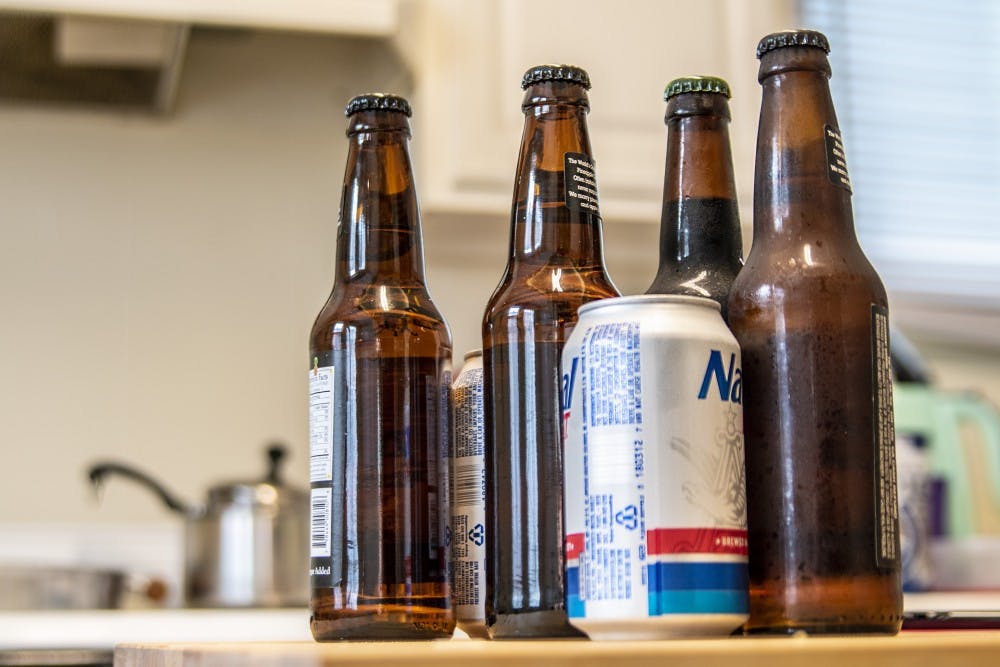Most people can agree that the drinking culture at colleges and universities across the country is not great. College students are known for regular binge drinking and throwing parties where alcohol is commonplace.
For college administrators and local authorities in particular, alcohol’s prevalence is a major issue to consider when organizing events and making campus rules and local regulations.
Alcohol abuse by college students leads to much higher rates of physical violence and sexual assault, as well as higher rates of DUI/DWI and alcohol-related deaths and injuries. There is clearly a problem with the drinking culture of 18-21-year-olds, and changes need to be made in order to make college and society safer for everyone.
The best way to combat this problem would be to lower the drinking age to the age of 18. Doing this would lead to the normalization of the drug and decreased consumption and abuse due to its wider availability.
The biggest problem with college drinking is how much students drink. Due to alcohol being scarcer, people are likely to binge drink large quantities of alcohol to get more bang for their buck.
According to a study by IU professor Ruth C. Engs in 1994 on the drinking patterns of college students: “Students feel they have the right to drink, illicit alcohol consumption has gone ‘underground’ away from adult monitoring. Because these illegal drinkers do not have adult social pressure to limit their consumption to more moderate levels, they are likely to consume more drinks on the fewer occasions when alcohol is available.”
This leads to alcohol being viewed as a “forbidden fruit,” increasing the social pressure among college students to drink more.
The reason why the drinking age is 21 in the U.S. goes back to the National Minimum Drinking Age Act of 1984, which required that states prohibit people under 21 years of age from purchasing or publicly possessing alcoholic beverages as a condition of receiving state highway funds.
This law and many other drug laws are based on the assumption that legalization will lead to more unsafe situations and accidents.
The worry is that if the drinking age is lowered, it can give high schoolers and middle schoolers wider access to alcohol. The argument that alcohol is dangerous and should be further restricted is based on morality.
These arguments for restricting alcohol seem to make sense intuitively, but the evidence from recent years directly contradict this assumption.
According to the National Institute on Alcohol Abuse and Alcoholism’s Task Force on College Drinking, “driving while intoxicated incidents have increased since 1998, from 2.3 million to 2.8 million, as well as the number of alcohol-related deaths. In 2001, there were an estimated 1,700 alcohol-related unintentional injury deaths among college students 18-24, an increase of 6 percent among college students since 1998.”
It should also be noted that the number of DWI incidents has not been shown to directly correlate with the drinking age being 21, so lowering it does not necessarily indicate a spike in DWI incidents.
Pushing alcohol underground for young adults is more dangerous, and if we lower the drinking age to 18, we eliminate the pressure to drink more in one sitting. This is demonstrated by the recent legalization of marijuana in several states.
In the National Survey on Drug Use and Health between 2014-2015 and then 2015-2016 population percentages, “the rate of adolescent marijuana use in Colorado has fallen to its lowest level in nearly a decade, and it's not just marijuana: rates of teen alcohol, tobacco and heroin use are down sharply in the state, as well.”
The reality is that legalization is actually a much safer solution than prohibition because it allows for more regulation and control over consumption as well as a shift in drinking culture.
College would be a much safer environment for everyone, especially women, if the drinking age was reduced to 18. Young college women are often put in uncomfortable situation at events with alcohol, such as fraternity parties, leading to higher rates of sexual assault and rape.
Adults should have the freedom to consume alcohol as a matter of personal liberty. Lowering the drinking age back to 18 is not only moral, but it would be the safest thing for our communities to do.






